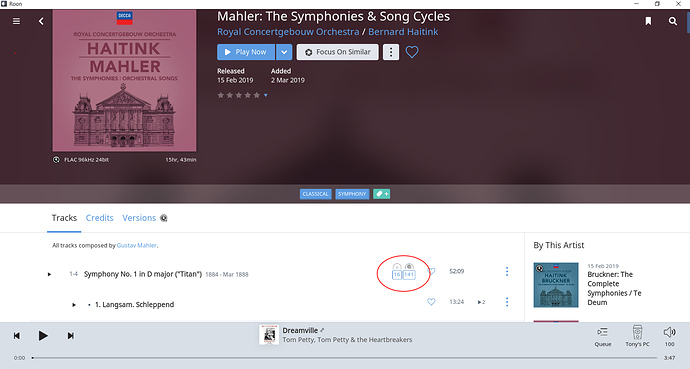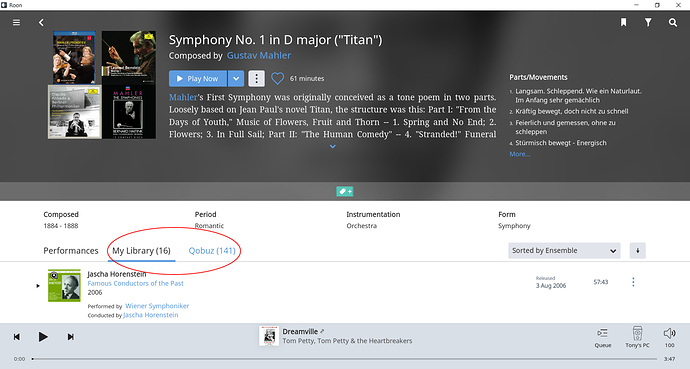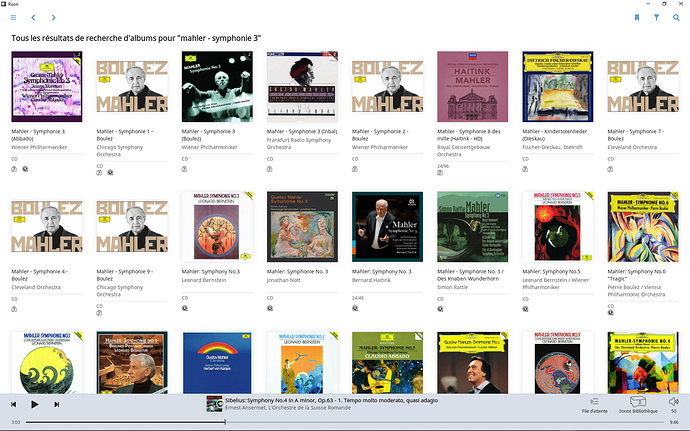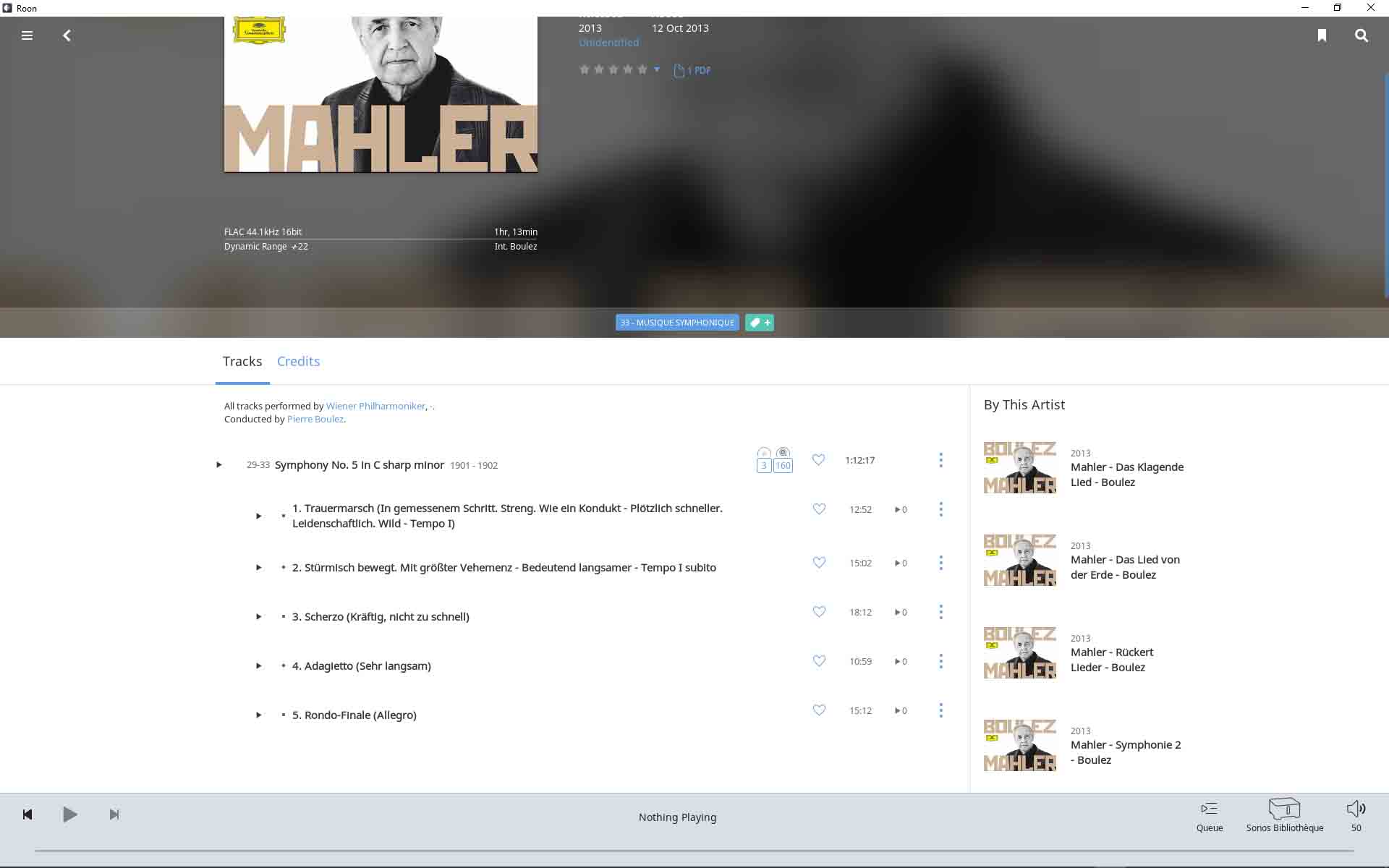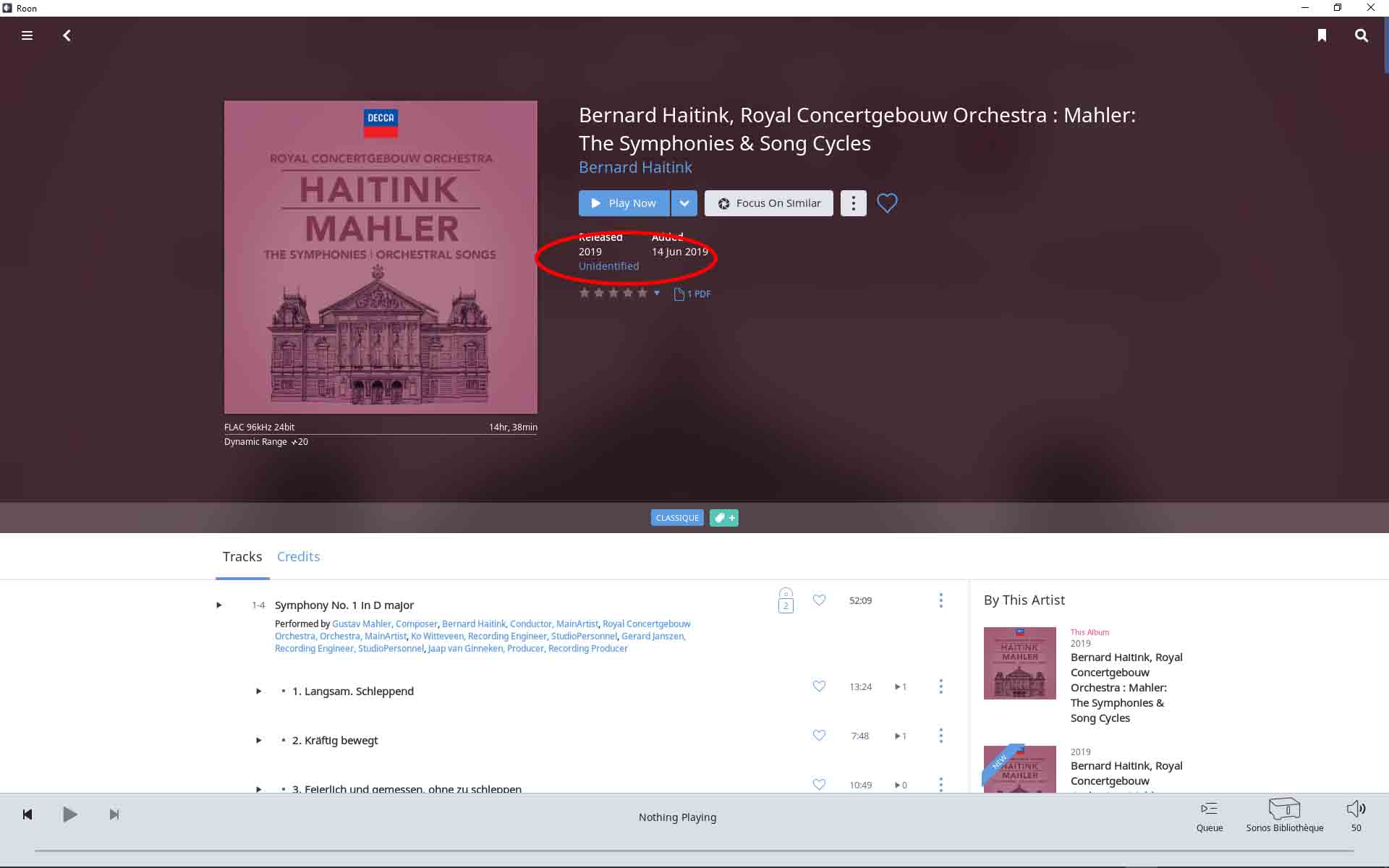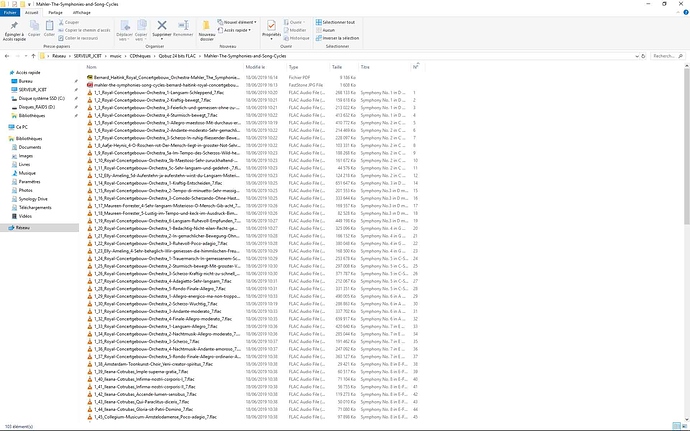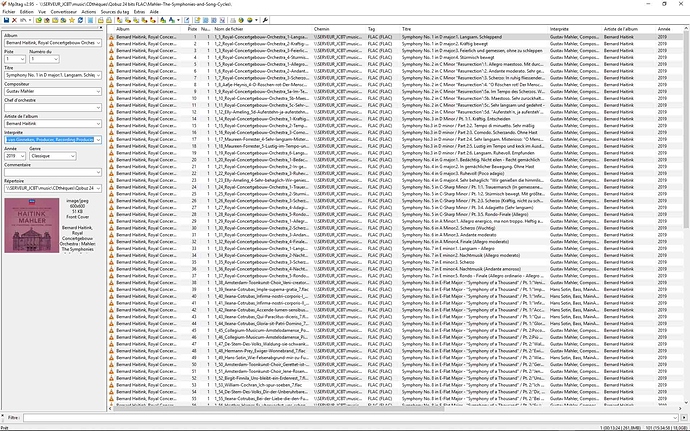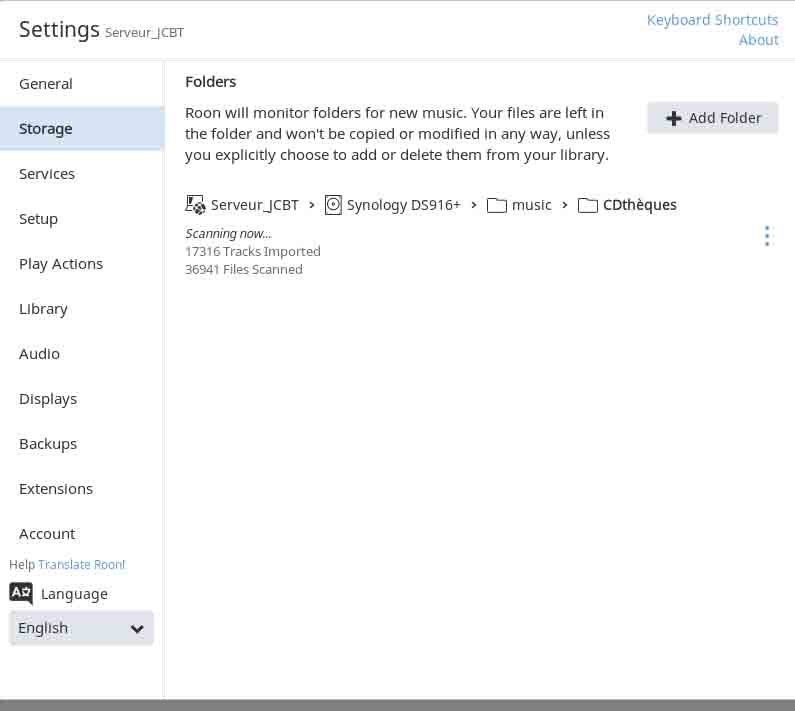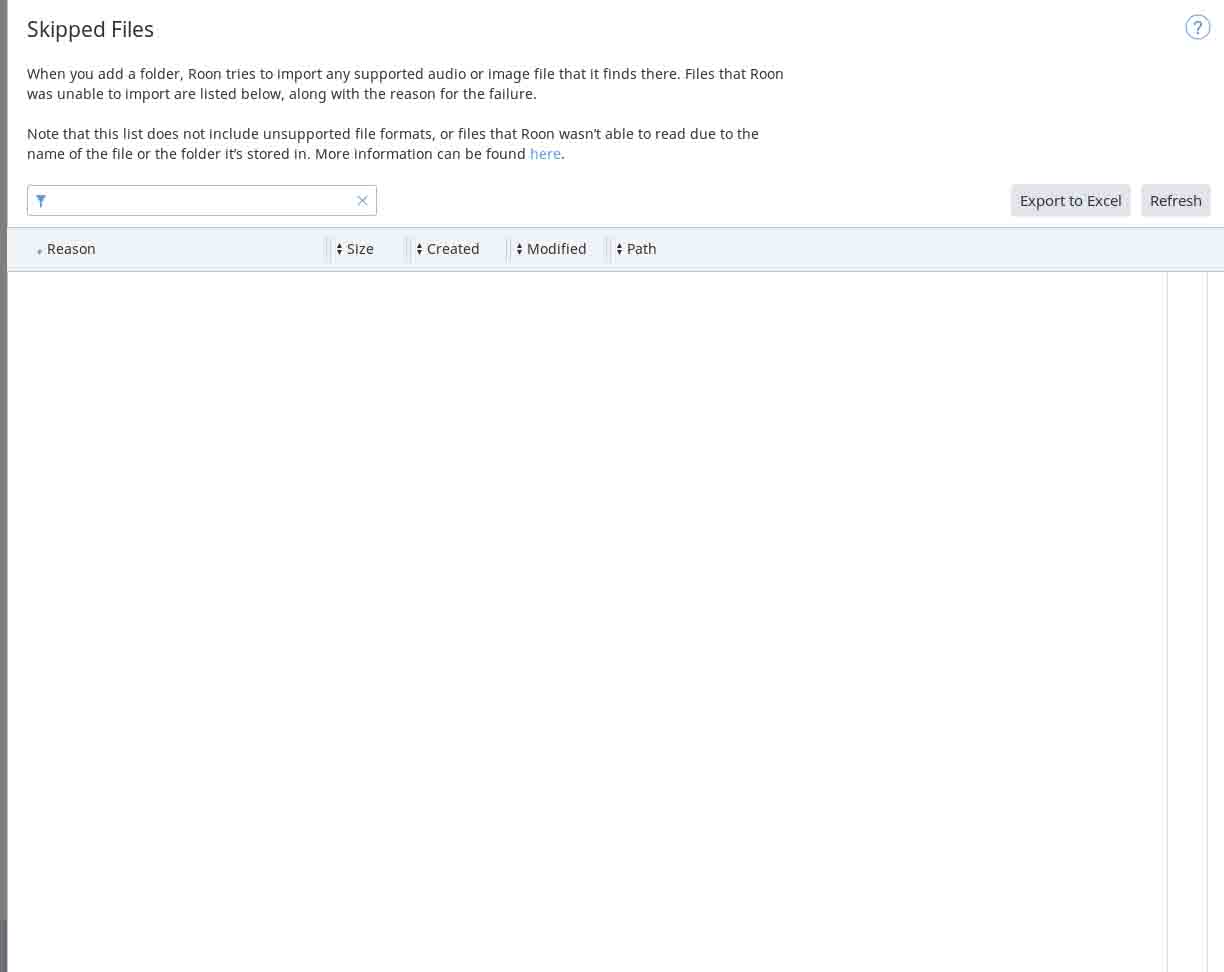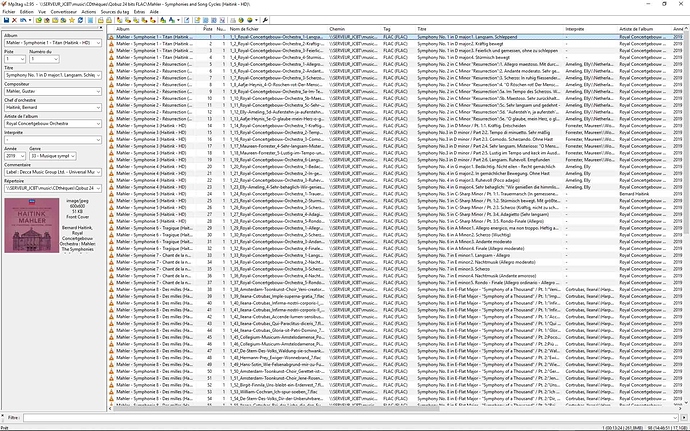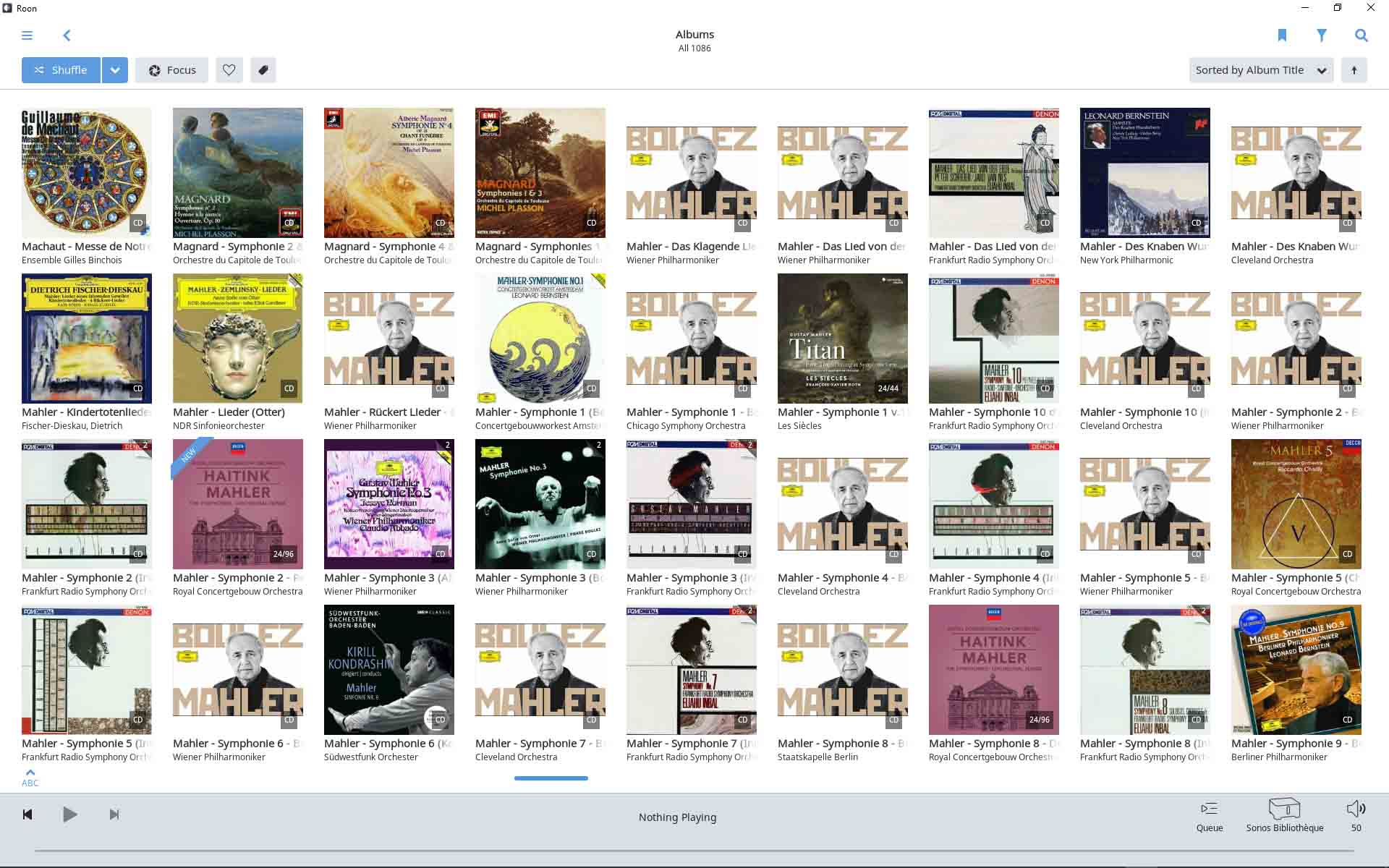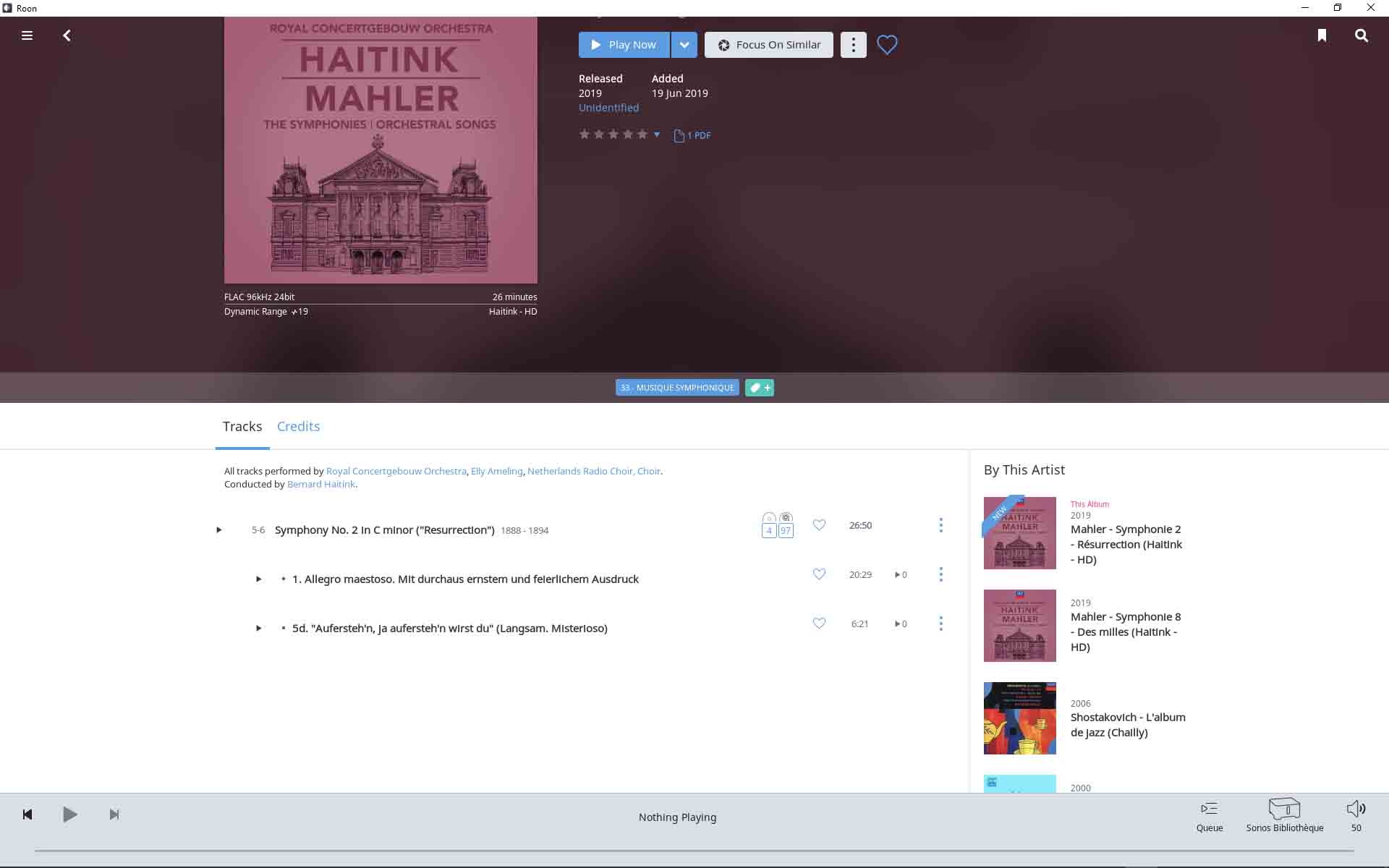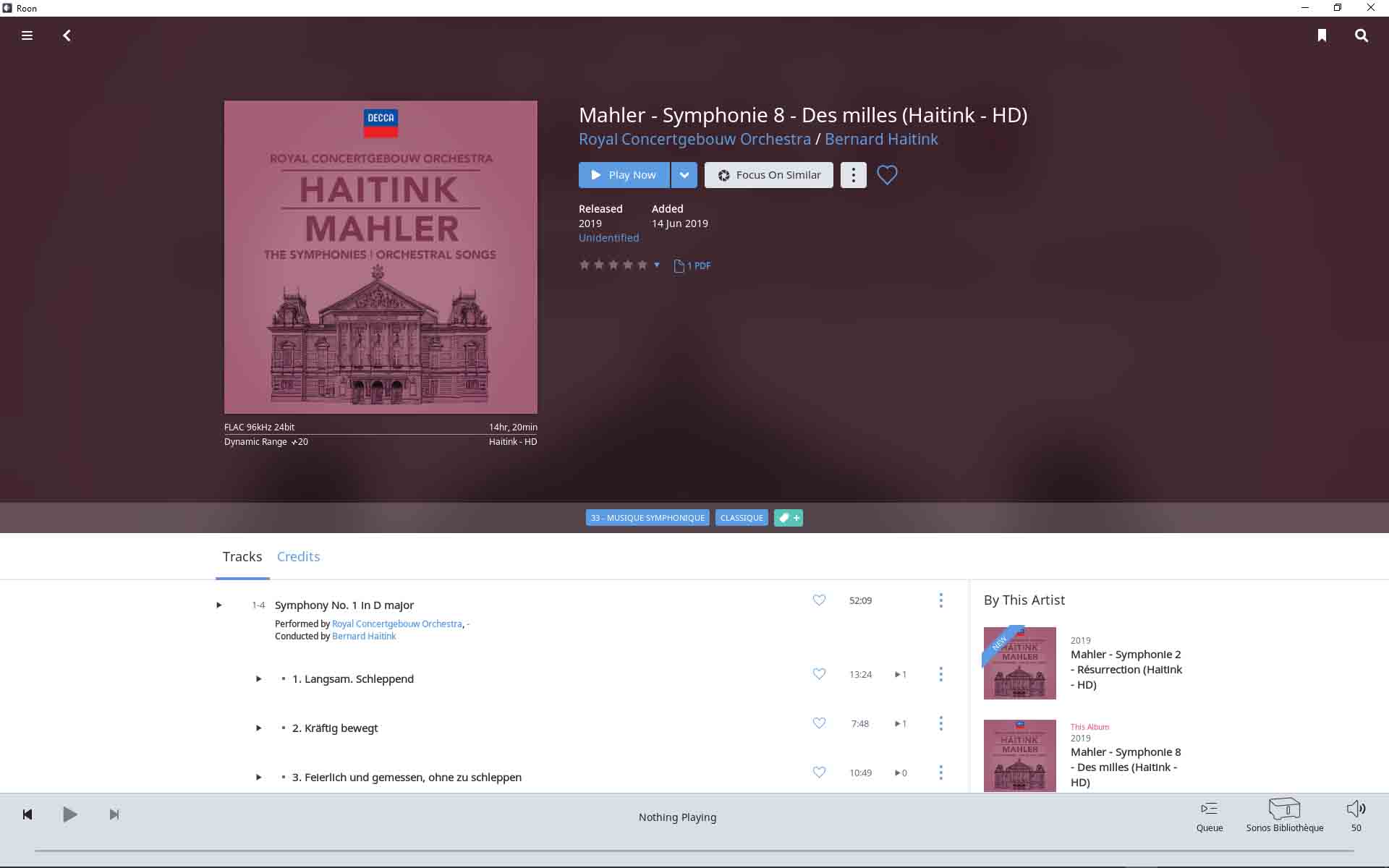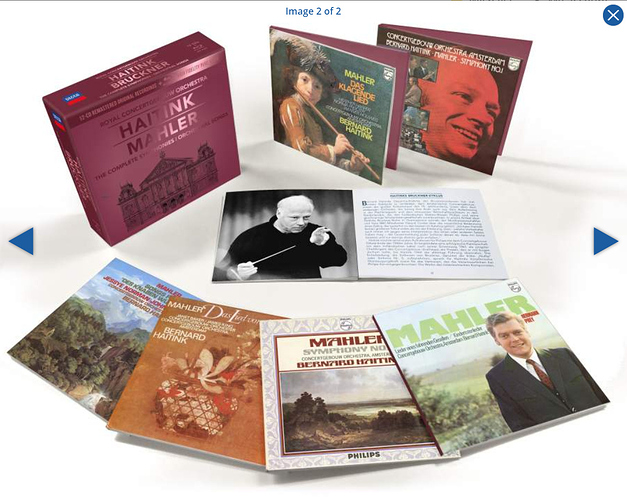Core on Synology DS916+ with more than 17000 tracks / Latest Roon build / Linn Akurate
through Ethernet
Description Of Issue
Hello,
I’m Roon’s recent client and not yet knowledgeable of all his subtitles; I did not find how to force Roon to consider the tags contained in files to create different albums rather than using the organization known by Ronn on one album.
Let me explain: my problem only concerns albums containing a large number of files and a smaller number of musical works; for example, the last Haitink - Mahler by Decca (The Symphonies and Song Cycles), which contains 102 files for only 15 works.
The navigation between all these 102 files is really not easy and I prefer for over ten years to change the tags “album” to create a virtual CD per work (for example a symphony). This allows me to easily compare different executions of the same work. But Roon does not take into account the “album” tags that I modified and still presents me only one album with 102 files.
I sspecify that I have set the parameters of Roon (metadata: prefer files) and I have not found an easy way to split the album with the “Fix Track Grouping” command.
Am I really required to manually create 15 directories with the Windows File Manager and then move the 102 files?
Thank you in advance for your help.
